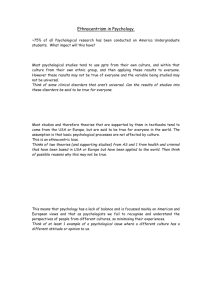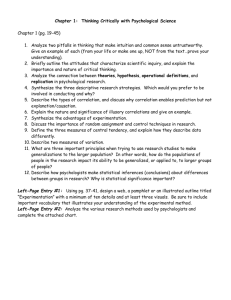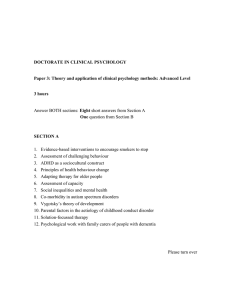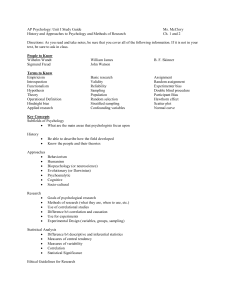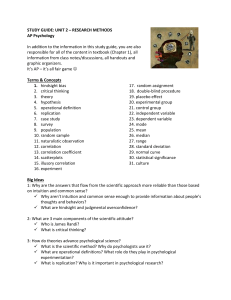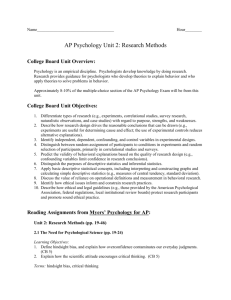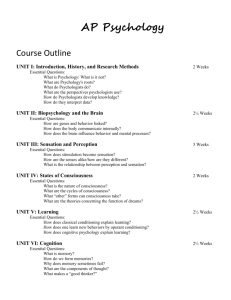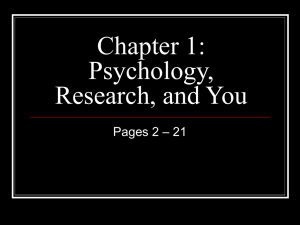Psychology Research Methods Unit Outline
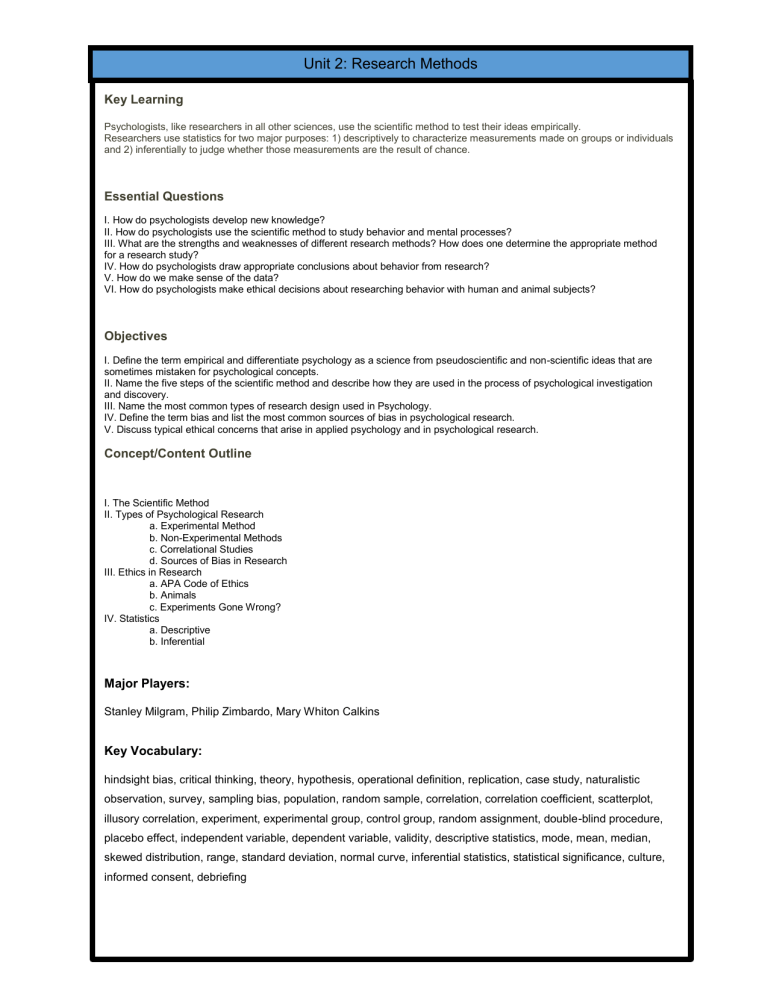
Unit 2: Research Methods
Key Learning
Psychologists, like researchers in all other sciences, use the scientific method to test their ideas empirically.
Researchers use statistics for two major purposes: 1) descriptively to characterize measurements made on groups or individuals and 2) inferentially to judge whether those measurements are the result of chance.
Essential Questions
I. How do psychologists develop new knowledge?
II. How do psychologists use the scientific method to study behavior and mental processes?
III. What are the strengths and weaknesses of different research methods? How does one determine the appropriate method for a research study?
IV. How do psychologists draw appropriate conclusions about behavior from research?
V. How do we make sense of the data?
VI. How do psychologists make ethical decisions about researching behavior with human and animal subjects?
Objectives
I. Define the term empirical and differentiate psychology as a science from pseudoscientific and non-scientific ideas that are sometimes mistaken for psychological concepts.
II. Name the five steps of the scientific method and describe how they are used in the process of psychological investigation and discovery.
III. Name the most common types of research design used in Psychology.
IV. Define the term bias and list the most common sources of bias in psychological research.
V. Discuss typical ethical concerns that arise in applied psychology and in psychological research.
Concept/Content Outline
I. The Scientific Method
II. Types of Psychological Research a. Experimental Method b. Non-Experimental Methods c. Correlational Studies d. Sources of Bias in Research
III. Ethics in Research a. APA Code of Ethics b. Animals c. Experiments Gone Wrong?
IV. Statistics a. Descriptive b. Inferential
Major Players:
Stanley Milgram, Philip Zimbardo, Mary Whiton Calkins
Key Vocabulary:
hindsight bias, critical thinking, theory, hypothesis, operational definition, replication, case study, naturalistic observation, survey, sampling bias, population, random sample, correlation, correlation coefficient, scatterplot, illusory correlation, experiment, experimental group, control group, random assignment, double-blind procedure, placebo effect, independent variable, dependent variable, validity, descriptive statistics, mode, mean, median, skewed distribution, range, standard deviation, normal curve, inferential statistics, statistical significance, culture, informed consent, debriefing
